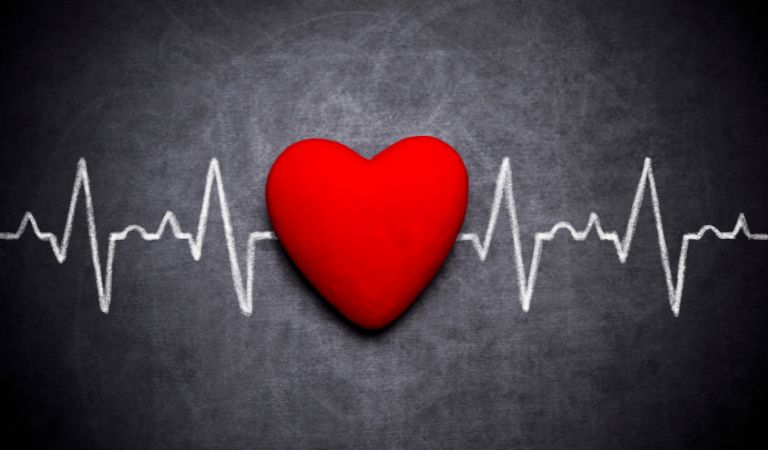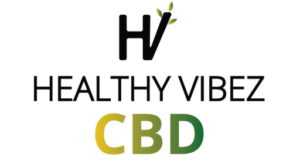Does CBD Affect Heart Rate

Cannabinoid, also known as CBD, is becoming increasingly popular due to its positive health effects. With the expansion lies possible threats as research is still being conducted, and a lot about CBD effects is unknown.
The fact that CBD got its legal status only a few years ago makes its effects highly uncertain, especially for people with heart or other serious health problems. With heart disease as the leading cause of death in the US, one should thoroughly assess the effects of CBD on the heart before using it.
CBD is used in beauty products, supplements, pet food, tinctures, and even bras; hence, you should be extra careful in its use. If you have a heart condition, you might find the read-ahead interesting as we’ll be analyzing does CBD affects heart rate.
Cannabidiol’s Impact On Heartbeat
Since CBD is a compound of the cannabis plant, it does have a calming effect on the heart. THC is another compound which can increase heart rate while CBD slows down the heart rate. People suffering from a heart attack or hypertension risk can benefit from its calming effect.
Also, it lowers the heart muscles’ metabolic rate, which can help manage blood pressure. It also slows down the heart’s response to minor strain, suitable for people with a high risk of heart attack. There have been various scientific studies on whether CBD converts to its compound THC while in the stomach, as this would raise the heart rate.
The findings revealed that CBD does not change its properties and does not increase heart rate. However, if you are taking heart medication, then get medical approval before consuming CBD as it can interact with certain medications, and the reaction may vary from person to person.
How Does CBD Affect The Heart Rate?
Previously, scientists thought that the endocannabinoid system (ECS) is present and performs in the brain; studies revealed that it’s present in all the organs of our body. The beneficial health effects of CBD that we experience are due to its impact on the ECS. Likewise, it is also present in the heart, which is why CBD affects heart rate by slowing it down.
Research revealed that ECS activates transient receptor potential cation channel subfamily V, member1 (TRPV1), which desensitizes the body. CBD has antioxidative and anti-inflammatory properties that combine with the heart’s ECS system to help reduce factors that may cause heart problems. There are various heart-related problems, so let’s look at how CBD helps solve each issue:
Stroke
The condition is called a stroke when the brain cannot get enough oxygen due to a blockage and deprives it of nutrients and oxygen. A blood vessel in the brain may burst, resulting in a hemorrhagic stroke. The leading cause is said to be a blood clot that’s caused by plaque buildup in the artery. High blood pressure, diabetes, obesity, and more are all caused by arterial plaque buildup. Animal studies reveal that CBD increases cerebral blood flow during a stroke, reducing its intensity. CBD reduces inflammation of the blood vessels, reducing the risk of ischemic stroke.
Palpitations
Ever felt your heart race at rest or when you are relaxed, it’s called heart palpitations. They are not something to worry about but can be a cause for something serious. Some studies reveal that CBD can regulate heart rhythm. Its effect benefits people facing palpitations due to tension or anxiety. However, before using CBD for palpitations, see a medical professional to find the cause.
Atherosclerosis
is a condition where plaque gradually builds up inside the arteries, increasing the risk for high blood pressure, high cholesterol, and diabetes. ECS system is also present in macrophages and vascular muscles. CBD helps regulate ECS and thus reduces the risk of atherosclerosis.
Hypertension
Hypertension, more commonly known as high blood pressure, is caused when the blood pressure exceeds the normal range. CBD induces vasorelaxation, which refers to the dilation of the blood vessels, which allows blood to flow without any resistance. If high blood pressure is caused by strain or distress. CBD’s anxiolytic and tension-relieving effects can be beneficial.
Inflammation
Research indicates that inflammation may be the main cause of heart diseases. Inflamed blood vessels make it difficult for the heart to pump blood. CBD helps reduce inflammation and improve blood flow. When blood flows easily through the vessels and arteries, there is less strain on the heart, reducing the chance of heart failure or stroke.
Obesity
Obesity is one of the main causes of congestive heart failure, which makes it crucial for heart patients to manage their weight. According to a study by Obesity and Cardiovascular Disease: a scientific statement from the American Heart Association, CBD promotes the browning of white fat cells. This helps in converting the fat cells into calories. The person will likely lose more inches when more fat deposits are converted into burnable calories.
CBD’s Impact On Cardiovascular Health Medication
Various studies have revealed that CBD’s role in heart health is improving its function, but here is a glitch. Although, there is no such study that shows CBD’s harmful interference with heart function.
However, it does pose a potential risk to people on medications related to heart health, especially blood thinners. CBD interferes with the functioning of these medications, causing them to build up in your body, which may lead to liver toxicity.
Best CBD For Heart Health
CBD comes in different forms, including tinctures, oils, edibles, vaporizers, and topicals. Taking CBD oil and keeping it under your tongue is the easiest and fastest way to enjoy its benefits. Vaping CBD is also a quick and effective way to benefit from CBD, but it’s not recommended for heart patients. Several researches have revealed possible lung damage and risk of cardiovascular diseases caused by vaping. There are three types of CBD you can choose from:
- Isolate: Only CBD cannabinoid is present in the product
- Full-spectrum: Includes various naturally occurring cannabis compounds, including terpenes, 0.3% THC, and other cannabinoids.
- Broad: Contains CBD and other cannabis compounds except THC.
CBD Isolate is the best option if you are starting because it includes pure CBD and no THC. Other types contain traces of THC, which may affect blood pressure and heart rate. If you wish to try other varieties, start with a small dose (5 to 10mg) and analyze its effects. Gradually increase the dosage according to your comfort level.
Recommended Dosage For People With Heart Problems
The recommended dosage depends on the sensitivity to CBD and the ingestion method. Products like edibles and tinctures have dosage instructions, giving you an idea of where to start. You can start with 10 to 20 mg daily, up to 600 mg, or even 100. CBD is safer even at higher doses, but you may feel adverse effects.
70 mg daily is considered the safest recommended dose for heart patients, but you can seek medical advice to determine your safe dose. Make sure to wait and evaluate the effects of each dose on your body chemistry and metabolism to decide what dose works best for you.
Conclusion
Heart rate variability with CBD has shown to be good with positive effects on cardiovascular health. However, responses to CBD may vary from person to person, and several factors can contribute to an increased heart rate. The method of CBD intake, dosage, and heart health all determine its effects on the heart rate.
Moreover, if you are considering CBD to help with heart problems, seek healthcare guidance, especially if you are taking heart medications. Make informed decisions under expert advice on does CBD affects heart rate and seek customized dose recommendations.
